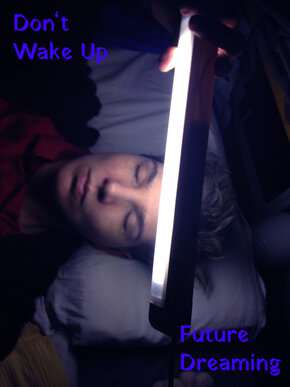- Wissenschaftliches Team
- Mission Statement des ZWF
- Artistic Research an der MUK
- Jahresthema
- Veranstaltungen des ZWF
- Aktuelles
- Forschungsprojekte
- Wissenschaftliche Forschungsprojekte
- Übersicht Wissenschaftliche Forschungsprojekte
- Beethoven
- Das Österreichisch-Deutsche Melodrama und seine Filmmusik
- Der Einfluss des Tonfilms auf das Drehbuch, 1927—1934
- Deutschsprachige und anglophone Formenlehre der Nachkriegszeit
- Die Frau meiner Träume
- Die Illusion der Freiheit
- ELEMU und die Kunst des Miteinanders
- Europäische Landschaften
- Experiment Notation
- Filmmusik zur Ideologievermittlung
- Gustav Mahlers kompositorische Logik
- Hausgeschichte - Zeitgeschichte
- Hellerau-Laxenburg
- Interdisziplinäre Mittelalterstudien
- It’s a Match!
- Kulturelle Teilhabe
- Liminale Bilder
- LSBTIQ* Bewegungen und Demokratie: Geschichte, Gegenwart und Zukunft
- MUK meets IFK
- Nicht aufwachen! Zukunftsträchtige Träume in den Künsten
- Salon Différance
- Tanzarchivarische Forschung
- Theater & Bewusstsein
- Urban Music Studies
- Verborgene Malerei
- Vom Text zur Performance: Literarische Ver-Körperungen
- Wachau-Mythos
- Künstlerische Forschungsprojekte
- Übersicht Künstlerische Forschungsprojekte
- Archiv der Suche
- Cabaret der alten Neuigkeiten
- Composer/Performer Relations
- DANCR – ein KI Werkzeug für Tanzforschung
- Das Verschwinden des Archivs
- Die Kunst der Inklusion
- Dynamik kondensierter Systeme
- Elementares Musiktheater
- Experiment Empathie in kollaborativer Improvisation
- Fiction and Research
- Franz Schubert — Der Akt des Dichtens in seiner musikalischen Darstellung
- Geschlecht und Gewalt
- Interuniversitärer Forschungsverbund Elfriede Jelinek
- Kunst und Politik
- Die Korrelation Blick, Raum & Sprechen
- Love Letters
- Notation und Aufführung
- Suite Mixtur
- Transforming Instrumental Gestures
- Unsichtbarkeit durch die Praktiken des (Zu)hörens
- Wort.Musik.Theater
- Entwicklung und Erschließung der Künste (EEK)
- Übersicht EEK
- Artist in Residence Programm
- Gegenwartskunst
- Bewegte Bilder des Jüdischen / Film und Exil
- Carte blanche
- Didaktik der zeitgen. Musik und des Komponierens
- Entente Musicale
- IGP und Community Music
- Jazz und seine Einflüsse aus anderen Musiktraditionen
- Method of Vienna
- Musik Denken
- Operette
- Poème électronique
- Stadt und Klang
- Wiener Originalquellen
- vienna.composers@MUK
- Zeitgenössische klassische Musik & Jazz
- Wissenschaftliche Forschungsprojekte
- Gender & Diversity
- Forschungsservice
- Kompetenzzentrum Film | Filmmusik
- Interuniversitäres Forschungsnetzwerk E. Jelinek
- Lehre
Nicht aufwachen! Zukunftsträchtige Träume in den Künsten
Don’t Wake Up! Future Dreaming in the Arts:
At the Intersection of Aesthetics, Decolonization and Technology
The interconnection of sleep and dreams is experiencing a surge of interest across the sciences, arts, and the wellness industry, in contrast to the previous understanding of sleep as uneventful and subordinate to the state of being awake. Artists translate these discourses, in both their scientific and popular versions. The project researches three interlinked fields: (1) politics and aesthetics of sleep and dreams, (2) decolonizing sleep in terms of body-politics and epistemic disobedience, and (3) dreaming as incubator for visionary artistic and media-technological inventions.
In Western natural science, a skepticism towards subjective, ‘inner’ experiences exist, and yet it has changed profoundly during history. Early romantic authors already focused on dreams to reconcile subjective and poetic experience with science. In the 1960s hippie culture renewed the interest in (drug- induced or other) dream experiences beyond Freudian psychoanalysis, which nowadays are incorporated into immersive media technology. Contemporary artists experiment with employing dreams as creative raw materials, decolonizing sleep, and hybrid stagings. Insofar as decolonization is not only critical cognitive work, but also a bodily process and critique of technology, it is significant to analyze artistic practices in this field.
The project defines itself through a series of interlocking core fields, designed to traverse different disciplines and foster theoretical and critical interventions. The disciplines are theater and performance studies and media-cultural studies informed by postcolonial and queer theory. These fields are connected to approaches from neuroscientific, technological, and philosophical sleep and dream research, when applicable.
Vortrag:
MUK meets IFK: "Im Schlaf arbeiten" mit Marietta Kesting
Träumerische Experimente und ihre Überführung in die Künste
Mi, 06.11.2024
18:15 Uhr
IFK - Internationales Forschungszentrum Kulturwissenschaften
Reichsratsstraße 17
1010 Wien
Website des IFK
Eintritt frei
Die wechselseitige Verschränkung zwischen Schlaf- und Traumzuständen erfährt in Wissenschaft und Kunst, sowie in der Gesundheits- und Wellnessbranche eine erhöhte Aufmerksamkeit. Künstler*innen übersetzen diese Diskurse, sowohl in ihren wissenschaftlichen als auch in ihren populären Dimensionen. Die allgemeine Skepsis der westlichen Naturwissenschaft gegenüber subjektiven, „inneren“ Erfahrungen hat sich verändert. Frühromantische Autor*innen setzten bereits auf Traum- und Schlafzustände, um subjektive und poetische Erfahrungen mit wissenschaftlichen Erkenntnissen und technologischen Erfindungen zu versöhnen. In den 1960er Jahren erneuerte die Hippie-Kultur das Interesse an (Drogen- oder spirituell) induzierten Traumerfahrungen jenseits der Freud'schen Psychoanalyse. Zeitgenössische Künstler*innen experimentieren weiterhin mit der Verwendung von Träumen als kreativem Rohmaterial, jedoch auch mit dem umfassenderen Projekt einer Dekolonisierung des Schlafs.
Marietta Kesting ist Medien- Kunst- und Kulturwissenschaftlerin und forscht am FWF Projekt: Don’t Wake Up! Future Dreaming in the Arts: At the Intersection of Aesthetics, Decolonization and Technology an der MUK. Sie ist Forschungsbeauftragte am Institut for Cultural Inquiry ICI, Berlin und Lehrende am Institut für Künste und Medien an der Universität Potsdam.
Eine Kooperation von IFK — Internationales Forschungszentrum Kulturwissenschaften und MUK.
Förderungspartner


Bei diesem Forschungprojekt handelt es sich um ein FWF-Richter Projekt mit der Nr. V1053.







